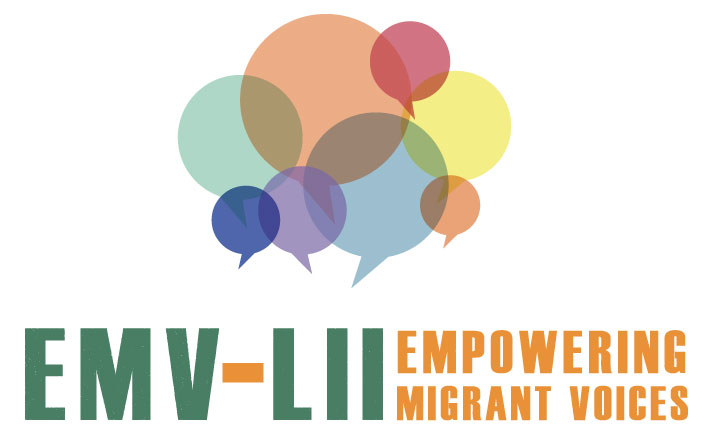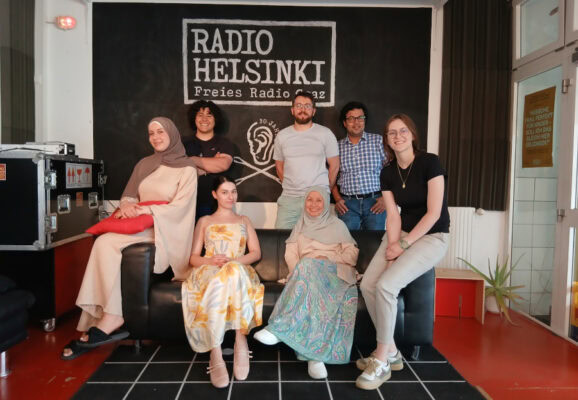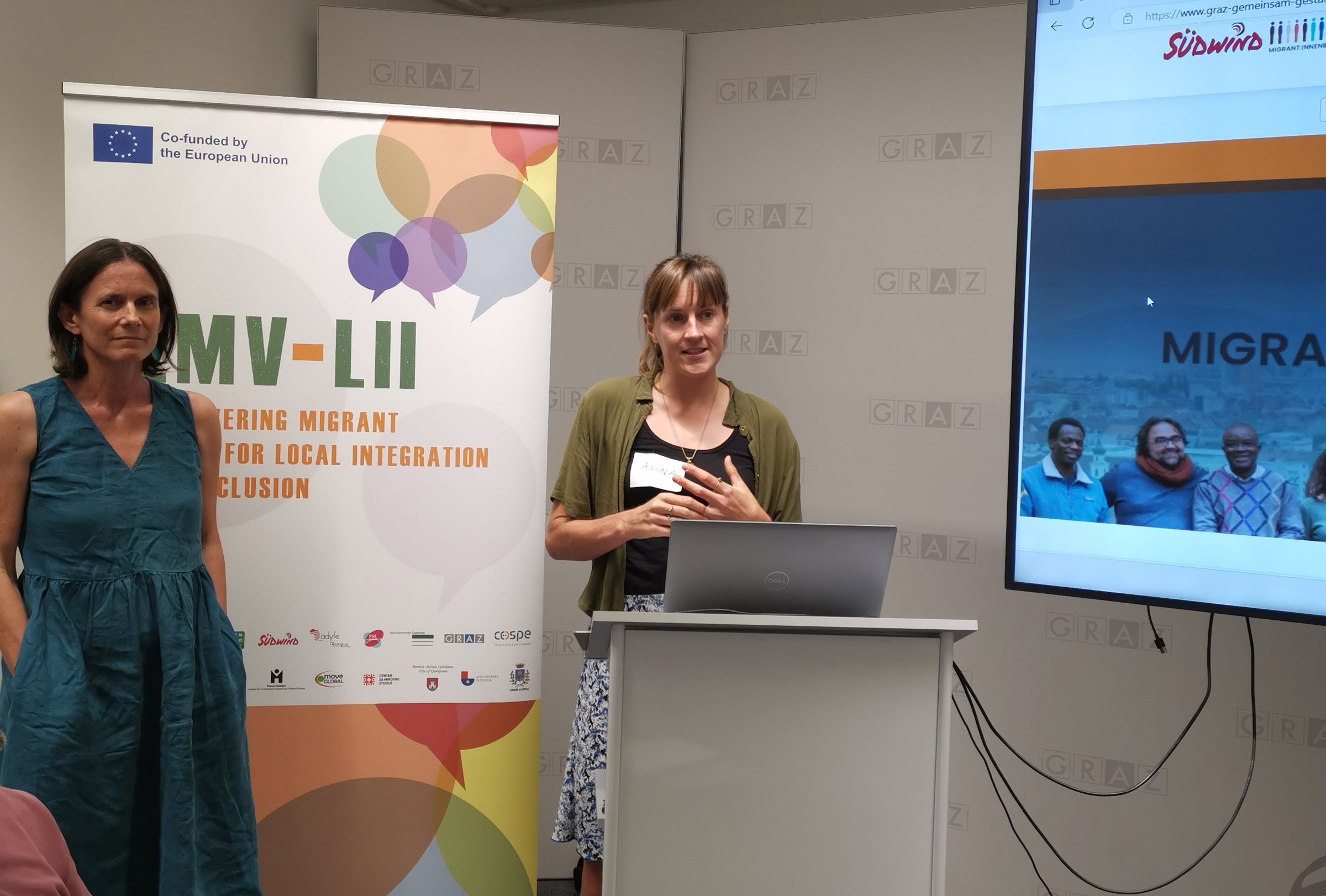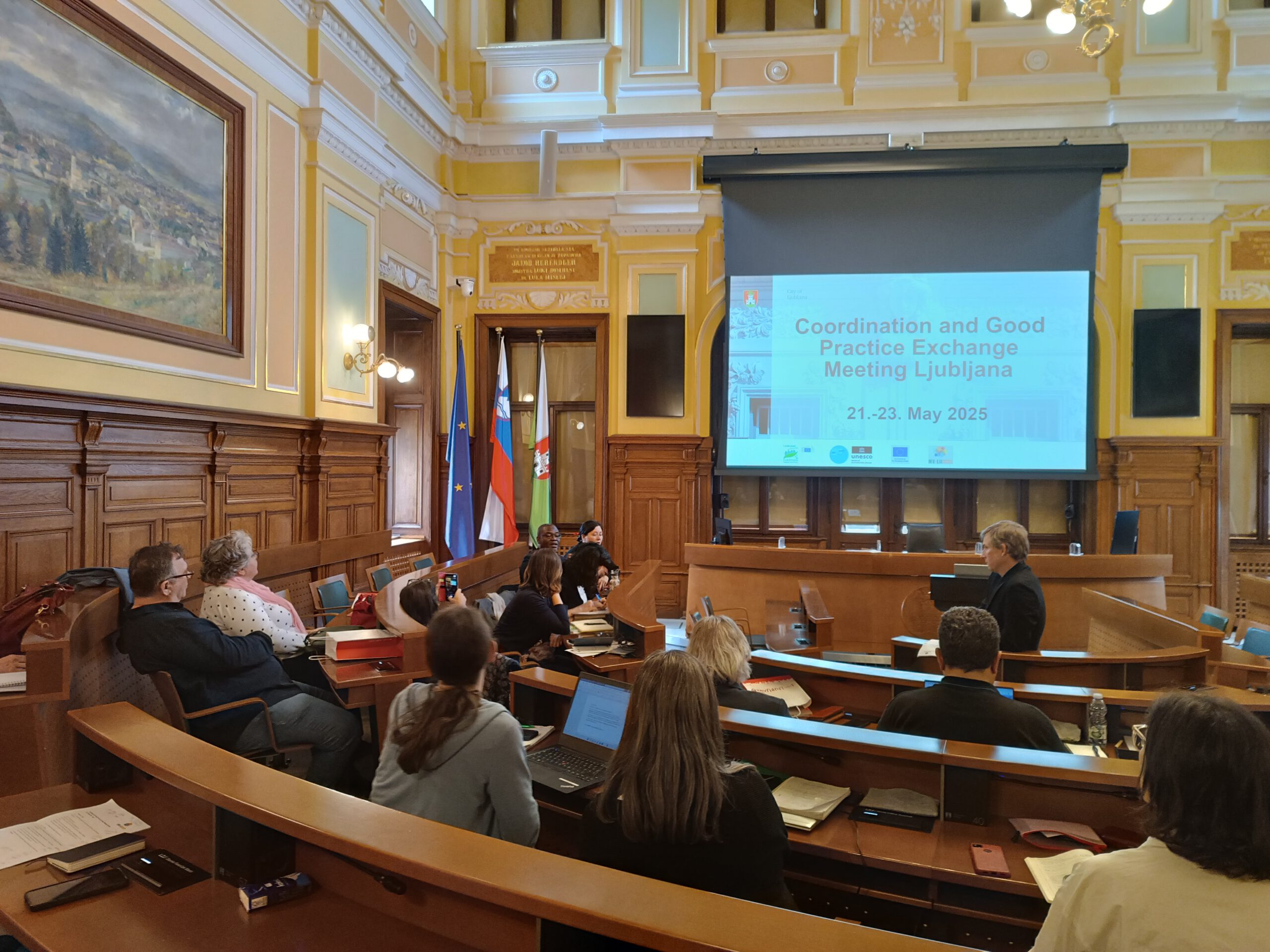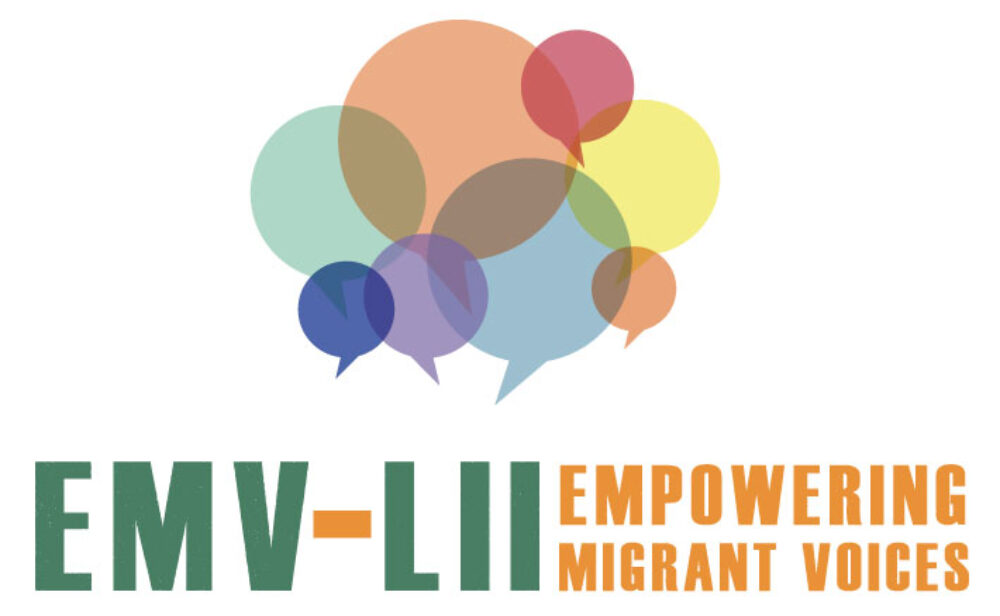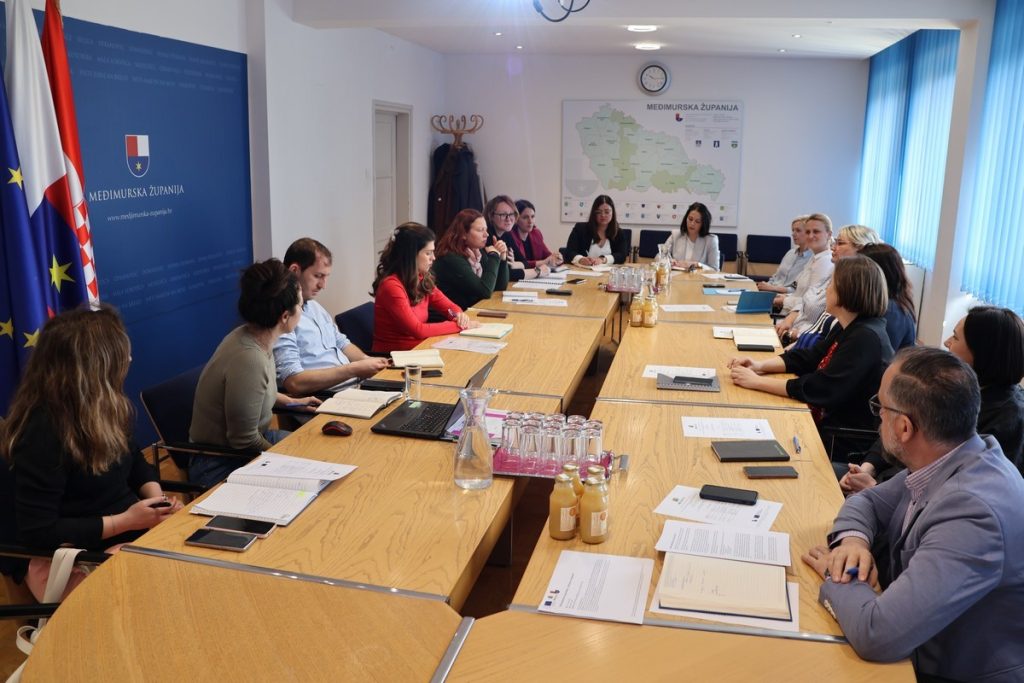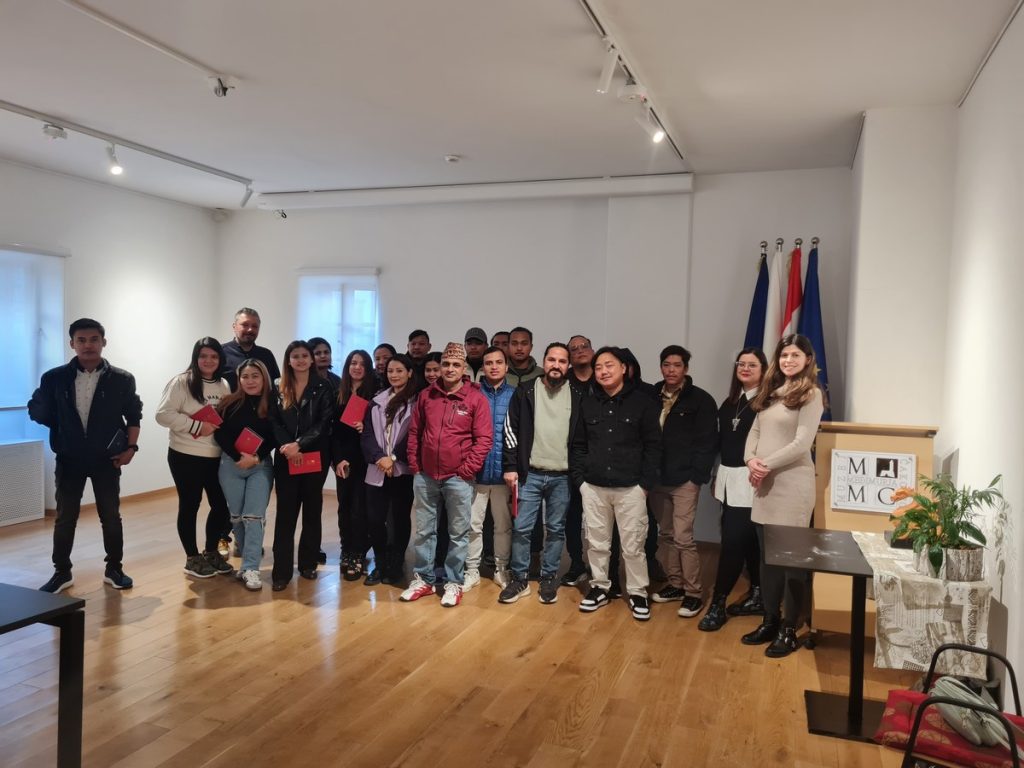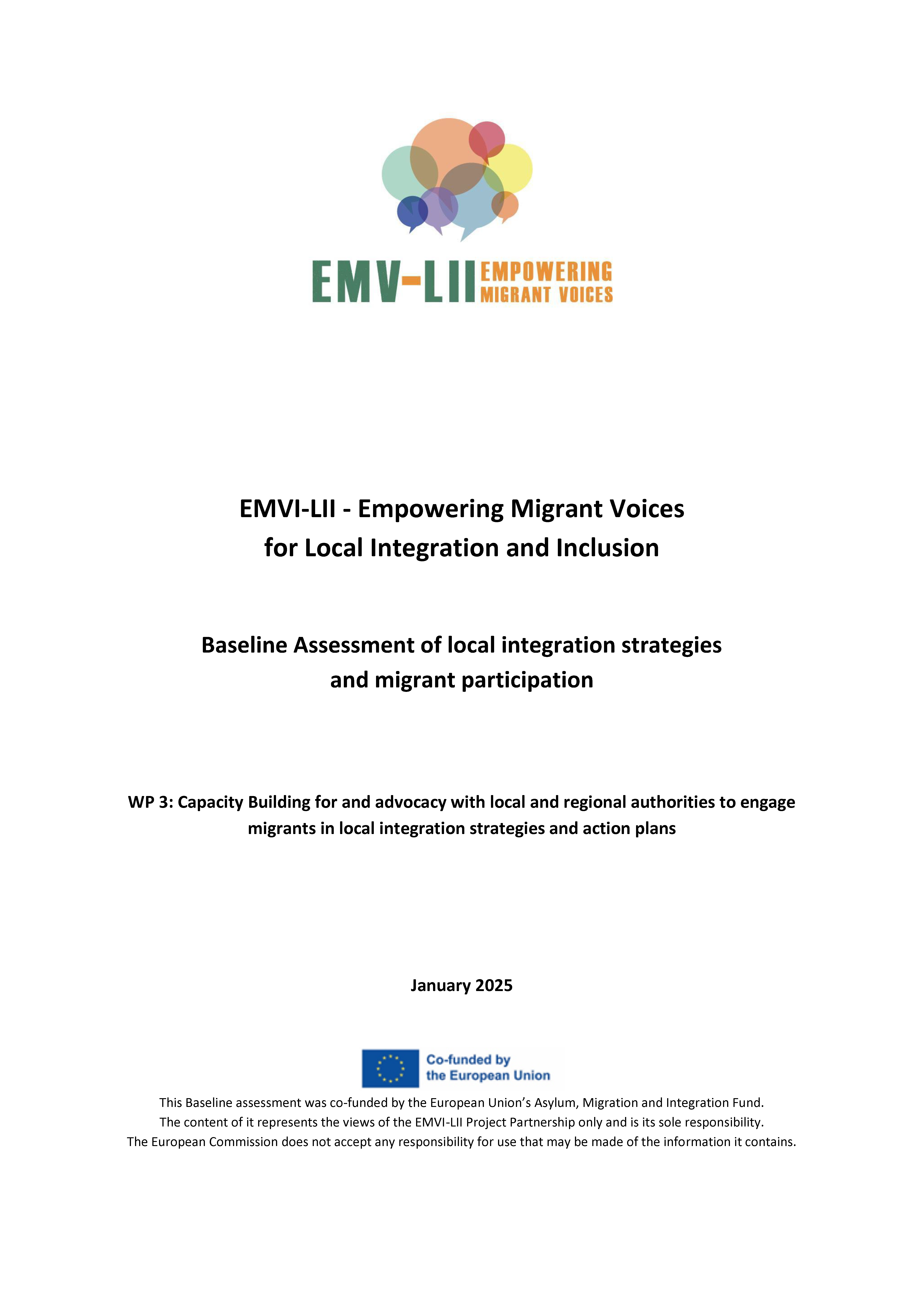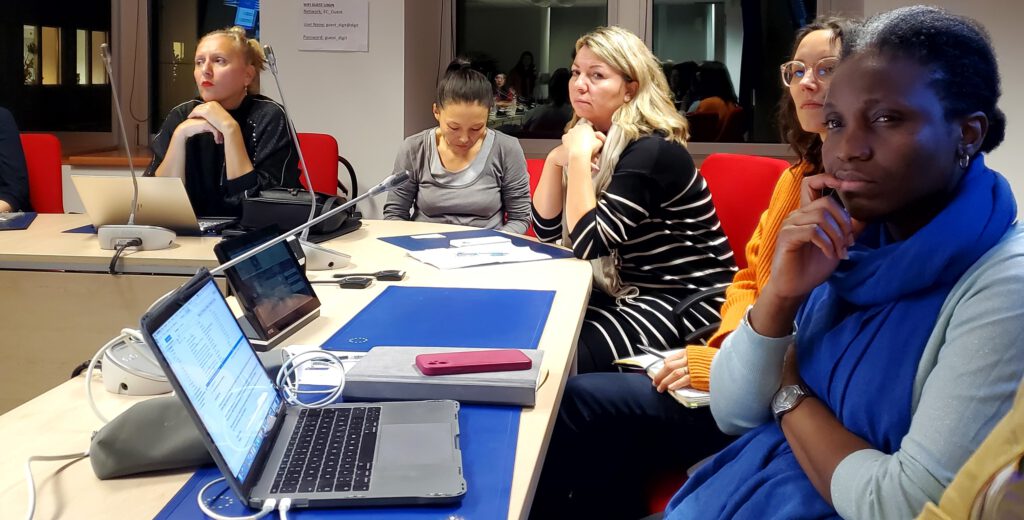
A reception office for civic integration. This is the service that Bon offers in Brussels, opening its doors to people of foreign origin with a residence permit valid for at least 3 months and helping them with a whole series of services ranging from Flemish language courses to job search, from knowledge of the Belgian lifestyle to active participation in society. “You have just arrived in Brussels and everything is new to you? Or have you been here for a while but still have questions? We understand how difficult it can be to find what you are looking for. That’s why you can sign up for the Bon integration program. Courses and advice are provided in your language. Our expert colleagues will be happy to help you find the answers to all your questions,” the Bon website says. An experience worth knowing and exploring, therefore. And this is why, during the three-day visit to Brussels, from 14 to 16 November, the delegation of the EMVI (Empowering Migrant Voices) project was able to visit Bon’s central office, in rue de la Chancellerie, and meet the responsible service formation, Sofie Jonckheere. “In June 2015 there was a big change because before we were around 24 NGOs and at that moment we were all gathered into the agency (Agentschap Integratie en Inburgering) and now we are financed by the Flemish government. Bon provides all its information and materials in more than 20 different languages. The staff is also multilingual because we think it is very important, to respond to people’s needs, that the staff also represents the reference groups”, Jonckheere immediately explained. “From an operational point of view, we are responsible for civic integration, which means a variety of things. In fact: the people involved in Bon follow a social orientation course, i.e. a course on Belgium, they also follow a Flemish course, we help them find a job, they receive individual counseling, we also offer various cultural activities, and above all we help them with the recognition of the diploma, because the procedures are very complex and it is very, very important to obtain recognition of the qualification, both to find a job and perhaps to continue your studies. And then we also give legal support through lawyers,” she specified.
The social orientation course consists of courses on life in Belgium in all its aspects, from housing to residence rights, from learning to work to health, from the transport system to the rules and values of the State, passing through the study of the history of the country, geography, consumption, and taxation. “We offer courses in over 20 languages. And we are flexible in terms of hours, but not only that. The courses start 8 times a year, so there are various placement opportunities. And we also have online courses. In fact, with the Coronavirus, we also moved online. I will never forget that Friday, March 13th: until then we had only had in-person lessons and from the next day we were already online. We didn’t miss any days. And since then we have seen the positive aspects of being able to continue to have courses online too,” she explained. The second element on which Bon insists is that of learning the language, Flemish in particular. “It’s quite obvious to say that if you move to another country and don’t know the language, everything becomes more complex. The language gives you access to cultural activities and the job market, as well as helping you feel at home,” she highlighted. “There is recent research on the motivation to study Flemish. A really big reason is job hunting. Another reason is that many children are in schools in the Flemish circuit and, therefore, if your child goes to a Flemish school and you don’t speak it it becomes more difficult to interact with that context. And, third, many people then want to go to Flanders,” she described.
Another pillar of Bon’s activity, perhaps the most difficult, is the search for work. A very complex aspect, which requires time and on which Bon works in support of the Brussels Employment Office, Actiris. “We help people a lot to find work, which is not easy. Our main partner is Actiris whose task is to support you in finding a job”, she specified. Bon’s action, therefore, also develops in promoting group activities ranging from the construction of networks of personal acquaintances to the daily practice of Flemish, from the strengthening of their skills to workshops and volunteer activities, from sports to cultural activities. “It is not always easy for newcomers to find their way and feel at home in Brussels,” the website reads. “The CoNnect project helps them build a social network. The VGC (Flemish Community Commission) and the FMDO (Federation of Global and Democratic Organizations) supervise this process, in which immigrants are linked to a friend. They also organize joint group activities. The intention is for participants to meet at least twice a month and choose their activities together,” the webpage continues.
Bon also works on the recognition of diplomas. Again, Bon is not responsible for the process, but he supports people along the way by providing practical help. The Office has a dedicated team of people who provide support in obtaining diploma recognition, with information sessions on the procedures and also individual guidance. As regards the timing of obtaining recognition, there are large variables to take into consideration, first of all, the type of diploma you have. “It is a complex procedure, but we are not responsible for it. There is another organization responsible for the evaluation, with which we are in contact and follow the procedures. Sometimes it’s faster, but overall it tends to be very difficult. I can’t say how long it takes, sometimes it’s very very long,” Jonckheere pointed out. Among the other services that Bon provides there is legal advice, a legal help desk that gives support and information on immigration laws, asylum, and international family law, provides training on residence rights, employment, and family reunification, and provides tailor-made support for organizations.
Finally, Bon appears as a multifaceted container of stories and possibilities. Like a daily newsletter of life and hospitality. “This morning, 15 newcomers from all over the world cycled through the center of Brussels to Abdij Ter Kameren. Nothing special, you might think, but if you consider that up until three weeks ago they couldn’t pedal or couldn’t pedal at all, then you can see that it’s quite an achievement. This special bike ride is the highlight of the cycling lessons they took at Bon and Pro Velo,” describes a news story published on the website a few days ago. And again: “Trust in the authorities. For many people who flee their country, it is not easy to believe in the good intentions of the government or the police. To reduce this gap, Bon annually invites the police to one of Masir Avenir’s integration courses for young newcomers to Brussels aged between 17 and 19.” Precisely, welcome, knowledge, and, finally, inclusion, and participation.
